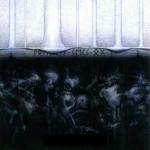Breathing plants!
https://www.news.com...1536ff1b0939b02
Incredible video shows plants ‘breathing’
Watch plants “breathing” in magnified view in an incredible video that captured the process in detail for the first time.
Andrew Court - New York Post
2 min read
December 20, 2022 - 12:36PM
It’s breathtaking footage.
An astonishing new video shows plants “breathing” in real-time — and the footage could have huge implications for how farmers feed the world in the future.
The close-up clip was captured by biologists at the University of California San Diego during research funded by the US National Science Foundation, the New York Post reported.
While filming the flora, the biologists discovered how plants use their stomata — tiny openings commonly known as their “mouths” — to direct their breathing of carbon dioxide.
Knowing how plants use their stomata to open and close in response to changing carbon dioxide levels could allow scientists to produce crops robust enough for a changing environment, according to National Science Foundation spokesperson, Jared Dashoff.
“The researchers hope that harnessing this mechanism could lead to future engineering of plant water use efficiency and carbon intake, critical as atmospheric carbon dioxide concentration continues to increase,” he told South West News Service.
“When stomata are open, the inside of the plant is exposed to the elements, and water from the plant is lost into the surrounding air, which can dry them out,” Dashoff further explained. “Plants, therefore, must balance the intake of carbon dioxide with water vapour loss by controlling how long the stomata remain open.”
Research leader, Julian Schroeder, added: “The response to changes is critical for plant growth and regulates how efficient the plant can be in using water, which is important as we see increased drought and rising temperatures.”
As the climate changes, both atmospheric carbon dioxide concentration and temperature increase, affecting the balance between carbon dioxide entry and water vapour loss through the stomata.
If plants, especially crops like wheat, rice and corn, can’t strike a new balance, they risk drying out, farmers risk losing valuable output, and more people across the world risk going hungry.
“Scientists have long understood stomata and the balance between carbon dioxide intake and water loss,” Dashoff stated. “But what they haven’t known, until now, is how plants sense carbon dioxide to signal stomata to open and close in response to changing carbon dioxide levels.”
“Knowing this will now enable researchers to edit those signals — so plants can strike the right balance between taking in carbon dioxide versus losing water — and allow scientists and plant breeders to produce crops robust enough for the environment of the future.”
Dashoff added that the researchers are so excited by their findings that they have now filed a patent and examining ways to translate their findings into tools for crop breeders and farmers.
Richard Cyr, a National Science Foundation program director, said the findings were nothing short of game changing.
“Determining how plants control their stomata under changing CO2 levels creates a different kind of opening — one to new avenues of research and possibilities for addressing societal challenges,” he declared.
Check out the video at the top of the article.
----------------------------------------------------
Kinda reminds me of Barad-Dur for some reason ...
Or "HYCYBH" (ski-bop, badap) by Tom Cardy on youtube. NSFW.

This post has been edited by Tsundoku: 20 December 2022 - 01:45 AM
"Fortune favors the bold, though statistics favor the cautious." - Indomitable Courteous (Icy) Fist, The Palace Job - Patrick Weekes
"Well well well ... if it ain't The Invisible C**t." - Billy Butcher, The Boys
"I have strong views about not tempting providence and, as a wise man once said, the difference between luck and a wheelbarrow is, luck doesn’t work if you push it." - Colonel Orhan, Sixteen Ways to Defend a Walled City - KJ Parker

 Help
Help
















